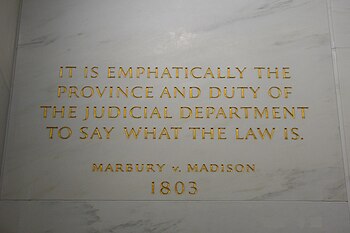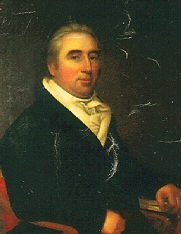
For years, a primary goal of Republicans has been to reshape the judiciary. They have done so using every tool at their disposal, but one of those tools was not honesty. Not even considering President Obama’s nominee Merrick Garland on the basis that such nominations aren’t entertained during a presidential election year, and then ignoring that logic to confirm Amy Coney Barrett as a justice was a demonstration of both hypocrisy and Might Makes Right. With Republicans having precipitated this crisis; should the Democrats take control of the presidency, the House, and the Senate; as it appears they will; they would be perfectly justified in making use of that might to correct such an abuse.
What could they do? At a bare minimum, since Merrick Garland isn’t on the court and Neil Gorsuch is, the Congress could pass a law, increasing the size of the court to eleven. President Biden could then appoint two more people to re-establish a balance.
Others have argued for even more radical changes, including among others term limits and selection criteria by party; all of which are likely to be constitutionally problematic. Whatever power the Democrats will have next year, they will almost certainly not have the power to enact amendments. Indeed even to go so far as to increase the size of the court they will almost assuredly have to do away with the filibuster rule in the Senate.
Stepping Away From the Brink
If the Democrats take any of these actions, they will be perpetuating the use of the Supreme Court as an ideological football. There is one group of people who can stop this from happening: the court itself, specifically conservative justices. This can happen in one of a few ways, but the most obvious one would be for one or more conservative justices to retire. At a spry 72, Clarence Thomas may feel that his best years are in front of him, and that the Democrats wouldn’t dare tinker with the court’s composition. Justice Alito is 70, and may feel the same way. They should think again. While Joe Biden has indicated that he doesn’t want to get into such structural changes, he hasn’t rule them out.
Another alternative would be a clear pledge from conservative justices to maintain the status quo of their own accord. This would be a bitter pill to swallow, because it requires that one sublimate deeply held principles for the good of the institution. Indeed, one might ask, if one were to do this, why not retire from the court?
Even one conservative stepping down would be patriotic. It would allow the Senate to re-establish a comity that has been absent under Mitch McConnell, allowing things to get back to normal. It would also allow some rational discussion of what if any court reform would be necessary, such that it could take place in a bipartisan spirit. Whoever does this would be establishing a legacy that would likely far outlast any decision on the court.



